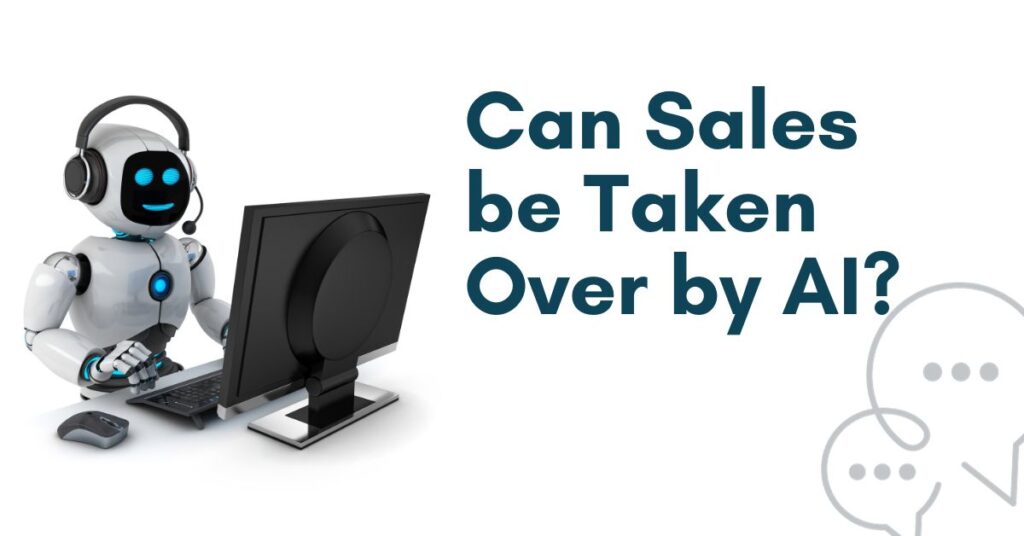
- Introduction to AI-Driven Sales Analytics
- Importance of AI-Driven Sales Analytics
- Applications of AI-Driven Sales Analytics
- Overview of AI-Powered Sales Analytics
- Benefits of AI-Powered Sales Analytics
- Challenges of AI-Powered Sales Analytics
- Use Cases of AI-Powered Sales Analytics
- AI-Powered Sales Analytics vs. Traditional Sales Methods
- The Future of AI-Powered Sales Analytics
- Conclusion
- FAQ
Welcome to our upcoming article on AI-driven sales analytics, where we explore how artificial intelligence is transforming the sales industry. With the advent of predictive analytics, machine learning, and advanced data analysis, businesses now have powerful tools to optimize their sales strategies and boost overall performance.
In this article, we will delve into the importance and applications of AI-driven sales analytics, highlighting how it can revolutionize your sales processes and drive growth. By harnessing the power of AI technology, businesses can gain valuable insights into sales data, enhance customer experiences, and make data-driven decisions.
Join us as we explore the benefits, challenges, and future potential of AI-powered sales analytics. Discover how this cutting-edge technology can transform your business and give you a competitive edge in today’s data-driven marketplace.
Introduction to AI-Driven Sales Analytics
AI-driven sales analytics is revolutionizing the sales industry by leveraging artificial intelligence (AI) technology to analyze sales data and gain valuable insights. Through the use of machine learning algorithms, businesses can identify patterns and trends in data, allowing them to make data-driven decisions and optimize their sales strategies. This technology is reshaping the way companies operate, helping them stay competitive and improve their overall sales performance.
By harnessing the power of AI in sales analytics, businesses can unlock a wealth of opportunities. AI technology can process and analyze large amounts of sales data faster and more accurately than traditional methods. It can provide real-time insights, enabling companies to respond swiftly to market changes and customer demands.
Benefits of AI-Driven Sales Analytics
- Improved Sales Forecasting: AI-driven sales analytics can predict future sales based on historical data and market trends, allowing businesses to plan and optimize their sales strategies.
- Enhanced Customer Experience: By analyzing customer data, AI-powered analytics can provide personalized recommendations, leading to increased customer satisfaction and loyalty.
- Increased Efficiency: Automation of repetitive tasks through AI technology frees up sales teams to focus on high-value activities, boosting productivity.
- Data-Driven Decisions: AI-powered analytics provides businesses with actionable insights, enabling them to make informed decisions and drive sales performance.
The future of AI-driven sales analytics is promising, as advancements in AI technology continue to drive its capabilities. By embracing this technology, businesses can gain a competitive edge and thrive in today’s data-driven economy.
Related Post: The Best AI-Powered Sales Tools for Optimizing Revenue
Importance of AI-Driven Sales Analytics
AI-driven sales analytics plays a crucial role in boosting business performance and driving growth. By leveraging advanced analytics for sales, businesses gain valuable insights into their sales performance and customer behavior. This data-driven approach enables companies to make informed decisions and optimize their sales strategies, ultimately maximizing revenue and staying ahead of competitors.
One of the key benefits of AI-driven sales analytics is its ability to provide real-time analysis of sales data. By tracking and monitoring sales performance metrics, businesses can identify trends, patterns, and opportunities as they emerge. This allows for quick adjustments and proactive decision-making, ensuring that sales teams are always focused on driving results.
Furthermore, AI-driven sales analytics empowers organizations with the ability to track customer behavior and preferences. By analyzing customer data, businesses can gain insights into buying habits, preferences, and pain points. This information is invaluable in tailoring sales strategies, delivering personalized customer experiences, and building strong, long-lasting relationships with customers.
Applications of AI-Driven Sales Analytics
AI-driven sales analytics has become an invaluable tool for sales teams, offering a wide range of applications that can enhance their performance and drive success. Here are some key areas where AI-driven sales analytics can be applied:
1. Lead Scoring and Qualification
One of the primary applications of AI-driven sales analytics is in lead scoring and qualification. By analyzing customer data and behavior, AI algorithms can identify and prioritize leads based on their likelihood to convert into customers. This helps sales teams focus their efforts on high-value leads with the highest potential for success.
2. Sales Forecasting
AI-driven sales analytics can also aid in sales forecasting by analyzing historical sales data and market trends. By leveraging machine learning algorithms, it becomes possible to predict future sales and market demand with a high degree of accuracy. This enables sales teams to make more informed decisions, set realistic targets, and allocate resources effectively.
3. Customer Personalization and Retention
Personalization is key to building strong customer relationships and maximizing sales opportunities. AI-driven sales analytics can analyze customer data to provide insights into individual preferences and behavior. This allows sales teams to tailor their approach and provide personalized recommendations, improving customer satisfaction and increasing retention rates.
4. Sales Performance Optimization
Another important application of AI-driven sales analytics is in optimizing sales performance. By analyzing sales data, AI algorithms can identify bottlenecks, inefficiencies, and areas for improvement in the sales process. This helps sales teams streamline their operations, increase efficiency, and achieve higher sales productivity.

In conclusion, AI-driven sales analytics offers a wide range of applications that can revolutionize the way sales teams operate. By leveraging the power of AI and machine learning, businesses can gain valuable insights, make data-driven decisions, and optimize their sales strategies. Whether it’s lead scoring, sales forecasting, customer personalization, or sales performance optimization, AI-driven sales analytics has the potential to drive significant improvements in sales performance and contribute to business success.
Overview of AI-Powered Sales Analytics
The use of artificial intelligence (AI) technology has revolutionized the field of sales analytics. By harnessing the power of AI, businesses can analyze sales data more effectively and gain valuable insights into their sales processes. AI-powered sales analytics utilizes machine learning algorithms to identify patterns and trends in data, enabling organizations to make data-driven decisions and optimize their sales strategies.
AI-powered sales analytics offers numerous benefits for businesses. It provides a deeper understanding of sales pipelines, allowing companies to identify areas for improvement and optimize processes. By leveraging AI algorithms, sales teams can increase efficiency, reduce costs, and improve overall sales performance. Additionally, AI-powered sales analytics enables organizations to predict future outcomes and make proactive decisions based on accurate data analysis.
The key features of AI-powered sales analytics include:
- Real-time insights: AI technology enables quick and accurate analysis of sales data, providing real-time insights into sales performance.
- Predictive analytics: AI algorithms can forecast future sales trends and outcomes, helping organizations plan and optimize their sales strategies.
- Data visualization: AI-powered sales analytics tools often include data visualization capabilities, making it easier for teams to interpret and share sales data.
- Personalization: AI technology can analyze customer behavior and preferences to provide personalized recommendations, improving the customer experience.
The use of AI-powered sales analytics is transforming the way businesses operate and make sales decisions. By leveraging AI technology to analyze sales data, organizations can gain valuable insights, optimize their sales strategies, and improve overall sales performance. With the continued advancement of AI technology, the future of AI-powered sales analytics looks promising, providing businesses with even more sophisticated tools to drive growth and success.

Benefits of AI-Powered Sales Analytics
AI-powered sales analytics offers numerous benefits for businesses in today’s competitive marketplace. By harnessing the power of artificial intelligence (AI), companies can unlock valuable insights and make data-driven decisions to optimize their sales strategies and improve overall sales performance.
- Improved Sales Forecasting: AI-powered sales analytics enables businesses to accurately predict future sales based on historical data and market trends. This allows companies to plan and optimize their sales strategies, maximize revenue, and stay ahead of the competition.
- Enhanced Customer Experience: Personalized recommendations based on AI-powered sales analytics can significantly enhance the customer experience. By analyzing customer data and behavior, businesses can provide tailored product suggestions and promotions, increasing customer satisfaction and loyalty.
- Increased Efficiency and Productivity: Automating repetitive tasks, such as data entry and reporting, through AI-powered sales analytics can free up sales teams to focus on high-value activities. This leads to increased efficiency, reduced costs, and improved productivity within the sales organization.
- Data-Driven Decision Making: With AI-powered sales analytics, businesses can make data-driven decisions by analyzing vast amounts of sales data quickly and accurately. These insights enable companies to identify trends, anticipate customer needs, and optimize sales strategies for better results.
- Competitive Advantage: Adopting AI-powered sales analytics gives businesses a competitive edge in the market. By leveraging advanced analytics and AI algorithms, companies can gain a deeper understanding of their sales processes, identify opportunities for improvement, and outperform their competitors.
Overall, AI-powered sales analytics empowers businesses to leverage the power of AI and advanced analytics to optimize their sales strategies, improve customer experience, increase efficiency, and gain a competitive advantage in the market.
Related Post: The Ultimate Guide to the Best AI Marketing Tools for Business Growth in 2024
Challenges of AI-Powered Sales Analytics
Implementing AI-powered sales analytics comes with its fair share of challenges. These challenges can range from data integration and quality to computing power and cost. It is important for businesses to be aware of these challenges and take necessary steps to overcome them in order to fully leverage the benefits of AI-powered sales analytics.
Data Integration and Quality
One of the key challenges businesses face when implementing AI-powered sales analytics is integrating and ensuring the quality of data. Sales data is often scattered across multiple platforms and systems, making it difficult to consolidate and analyze effectively. Additionally, the quality of the data can vary, with outdated or inaccurate information impacting the accuracy of AI algorithms. It is crucial for businesses to invest in robust data integration processes and data cleansing techniques to ensure that the data being analyzed is reliable and accurate.
Computing Power and Cost
AI-powered sales analytics relies on complex algorithms and computational power to process and analyze large volumes of data. This can pose a challenge for businesses that do not have access to sufficient computing resources. The costs associated with acquiring and maintaining the necessary hardware and software infrastructure can be significant. It is important for businesses to carefully assess their computing requirements and budgetary constraints before implementing AI-powered sales analytics.
Balancing AI with Human Expertise
While AI-powered sales analytics can provide valuable insights and automation capabilities, it is important to strike a balance between AI technology and human expertise. AI algorithms can analyze vast amounts of data and identify patterns, but human expertise is needed to interpret and contextualize the insights generated. Sales teams should work in tandem with AI technology, leveraging their domain knowledge and experience to make informed decisions based on the insights provided by AI-powered sales analytics.
Managing Potential Bias
Another challenge of AI-powered sales analytics is the potential for bias in data analysis. AI algorithms are trained on historical data, which can contain inherent biases. If these biases are not appropriately managed, they can result in biased insights and decisions. It is crucial for businesses to regularly monitor and audit the outputs of AI algorithms to ensure that they are free from bias. This can involve reviewing and updating training data, testing the algorithms with diverse datasets, and implementing fairness measures to prevent biased outcomes.
Use Cases of AI-Powered Sales Analytics
In today’s highly competitive business landscape, AI-powered sales analytics is proving to be a game-changer for sales organizations. By harnessing the power of artificial intelligence and machine learning, companies can gain valuable insights, streamline their sales processes, and drive better results. Let’s explore some of the key use cases of AI-powered sales analytics:
1. Sales Forecasting
AI-powered sales analytics can accurately predict future sales based on historical data and market trends. By analyzing various factors such as seasonality, customer behavior, and market dynamics, sales teams can make informed decisions and optimize their sales strategies. This enables businesses to better forecast demand, plan inventory, and allocate resources effectively.
2. Lead Scoring
Identifying high-quality leads is crucial for sales success. AI-powered sales analytics can analyze vast amounts of customer data to determine the likelihood of a lead converting into a customer. By assigning lead scores based on parameters like demographics, purchase history, and engagement levels, sales teams can prioritize their efforts and focus on leads with the highest conversion potential.
3. Customer Segmentation
Personalized marketing and sales strategies can significantly enhance customer engagement and drive conversions. AI-powered sales analytics enables businesses to segment their customer base based on various attributes such as demographics, preferences, and purchase behavior. This allows sales teams to tailor their messages, offers, and recommendations to specific customer segments, resulting in higher customer satisfaction and conversion rates.
4. Sales Performance Optimization
AI-powered sales analytics empowers sales teams to optimize their performance by identifying areas of improvement. By analyzing sales data, it can detect bottlenecks, inefficiencies, and underperforming sales reps. With these insights, sales managers can provide targeted coaching, training, and guidance to improve overall sales effectiveness. This leads to increased productivity, higher win rates, and ultimately, improved revenue generation.
With these use cases, it’s clear that AI-powered sales analytics has the potential to revolutionize the way sales organizations operate. By leveraging the power of artificial intelligence and machine learning, businesses can drive better sales outcomes, improve customer satisfaction, and gain a competitive edge in the market.

AI-Powered Sales Analytics vs. Traditional Sales Methods
When it comes to sales analytics, traditional methods have long been the norm. However, with the rise of artificial intelligence (AI), businesses now have access to advanced tools and technologies that can revolutionize their sales processes. AI-powered sales analytics offers several advantages over traditional methods, making it a game-changer for businesses looking to optimize their sales strategies and improve performance.
One of the key advantages of AI-powered sales analytics is its ability to process and analyze large amounts of data faster and more accurately than traditional methods. With AI algorithms, businesses can gain real-time insights into their sales data, enabling them to make data-driven decisions and identify trends and patterns that may have gone unnoticed. This allows sales teams to adapt their strategies quickly and capitalize on opportunities.
Another advantage of AI-powered sales analytics is the automation of repetitive tasks. With AI technology, sales teams can automate tasks such as data entry, lead scoring, and personalized recommendations. This frees up valuable time for sales professionals to focus on high-value activities, such as building relationships with customers and closing deals. By automating these tasks, businesses can increase efficiency and productivity, leading to higher sales performance.
Benefits of AI-Powered Sales Analytics:
- Processing and analyzing large amounts of data faster and more accurately
- Identifying trends and patterns in sales data in real-time
- Automating repetitive tasks, freeing up time for high-value activities
- Making data-driven decisions and optimizing sales strategies
Furthermore, AI-powered sales analytics can provide personalized recommendations and predict customer behavior. By analyzing customer data, AI algorithms can make accurate predictions about customer preferences, needs, and buying behavior. This enables sales teams to tailor their approach to individual customers, increasing the likelihood of a successful sale and improving customer satisfaction.
While traditional sales methods have their merits, AI-powered sales analytics offers a more efficient and effective approach to sales. By leveraging AI technology, businesses can unlock valuable insights, automate tasks, and make data-driven decisions that can lead to improved sales performance. As AI continues to advance, the future of sales analytics looks bright, with even more sophisticated tools and capabilities on the horizon.
The Future of AI-Powered Sales Analytics
AI-powered sales analytics is rapidly transforming the sales industry, and its future looks incredibly promising. With advancements in artificial intelligence (AI), predictive analytics, and machine learning, businesses can expect even more powerful and sophisticated capabilities in the coming years.
One of the key areas where AI-powered sales analytics will continue to excel is in providing deeper insights into sales processes and customer behavior. By leveraging AI technology, businesses can analyze vast amounts of sales data and uncover valuable patterns and trends that might otherwise go unnoticed. This deeper understanding allows companies to optimize their sales strategies, improve forecasting accuracy, and make data-driven decisions.
Moreover, the integration of AI-powered sales analytics with other emerging technologies, such as big data analytics and automation, will further enhance its capabilities. By combining these technologies, companies can unlock new opportunities for streamlining sales processes, increasing productivity, and delivering personalized customer experiences. The future of AI-powered sales analytics lies in its ability to seamlessly integrate with other tools and technologies to drive even greater business performance.
Key Takeaways:
- AI-powered sales analytics is poised for significant growth and advancement in the future.
- Deeper insights into sales processes and customer behavior will be a key focus of AI-powered analytics.
- The integration of AI with other technologies, such as big data analytics and automation, will enhance its capabilities further.
AI-driven sales analytics is revolutionizing the way businesses operate and make sales decisions. By leveraging artificial intelligence (AI) technology, companies can gain valuable insights into their sales processes and optimize their strategies. Predictive analytics and machine learning algorithms enable businesses to identify patterns and trends in sales data, providing them with the information needed to make data-driven decisions.
With AI-driven sales analytics, businesses can improve their sales forecasting capabilities, accurately predicting future sales based on historical data and market trends. This allows companies to plan and optimize their sales strategies, ensuring they stay ahead of their competitors. Additionally, AI-powered sales analytics can enhance the customer experience by providing personalized recommendations based on customer behavior and preferences.
Machine learning in sales is transforming the way businesses approach their sales operations. By automating repetitive tasks and prioritizing high-value activities, AI technology increases efficiency and productivity. Sales teams can focus on building relationships with customers and closing deals, while AI-powered tools handle data analysis and insights. The integration of AI with sales strategies is crucial for businesses looking to thrive in today’s fast-paced and data-driven marketplace.
The Future of AI-Driven Sales Analytics
The future of AI-driven sales analytics looks promising. As AI technology continues to advance, it will become even more powerful and sophisticated, enabling businesses to gain deeper insights into their sales processes and customer behavior. The integration of AI with other emerging technologies, such as big data analytics and automation, will further enhance the capabilities of AI-driven sales analytics. Companies that embrace and integrate AI into their sales strategies will be well-positioned to thrive in the future.
Conclusion
AI-driven sales analytics is revolutionizing the sales industry by harnessing the power of artificial intelligence (AI), predictive analytics, and machine learning. This technology empowers businesses to gain valuable insights and make data-driven decisions, ultimately improving their sales performance and overall business success.
By leveraging AI-driven sales analytics, companies can optimize their sales processes, identify trends and patterns in sales data, and forecast future sales outcomes. This powerful tool enables businesses to stay ahead of competitors and adapt their strategies to meet customer needs and preferences.
With AI-powered tools and algorithms, sales teams can automate repetitive tasks, prioritize high-value activities, and provide personalized recommendations to customers. AI-driven sales analytics is an essential tool for businesses looking to achieve long-term success and thrive in the data-driven economy.
Related Post: Top AI Finance Tools and Solutions for 2024
FAQ
What is AI-powered sales analytics?
AI-powered sales analytics refers to the use of artificial intelligence (AI) technology to analyze sales data and provide actionable insights.
How does AI-driven sales analytics work?
AI-driven sales analytics utilizes machine learning algorithms to analyze sales data, identify patterns and trends, and provide insights for optimizing sales strategies.
Why is AI-driven sales analytics important?
AI-driven sales analytics is important for businesses looking to improve sales strategies, maximize revenue, and stay ahead of competitors.
What are the applications of AI-driven sales analytics?
AI-driven sales analytics can be used for lead scoring, sales forecasting, customer segmentation, and personalized recommendations, among others.
What are the benefits of AI-powered sales analytics?
The benefits of AI-powered sales analytics include improved sales forecasting, enhanced customer experience, increased efficiency, and data-driven decision-making.
What challenges come with implementing AI-powered sales analytics?
Challenges of implementing AI-powered sales analytics include data integration and quality, computing power and cost, balancing AI with human expertise, and managing potential bias in data analysis.
How does AI-powered sales analytics compare to traditional sales methods?
AI-powered sales analytics offers advantages such as faster and more accurate data analysis, automation of tasks, personalized recommendations, and prediction of customer behavior.
What does the future hold for AI-powered sales analytics?
The future of AI-powered sales analytics is promising, with advancements in AI technology and integrated use with other emerging technologies expected to enhance its capabilities.

